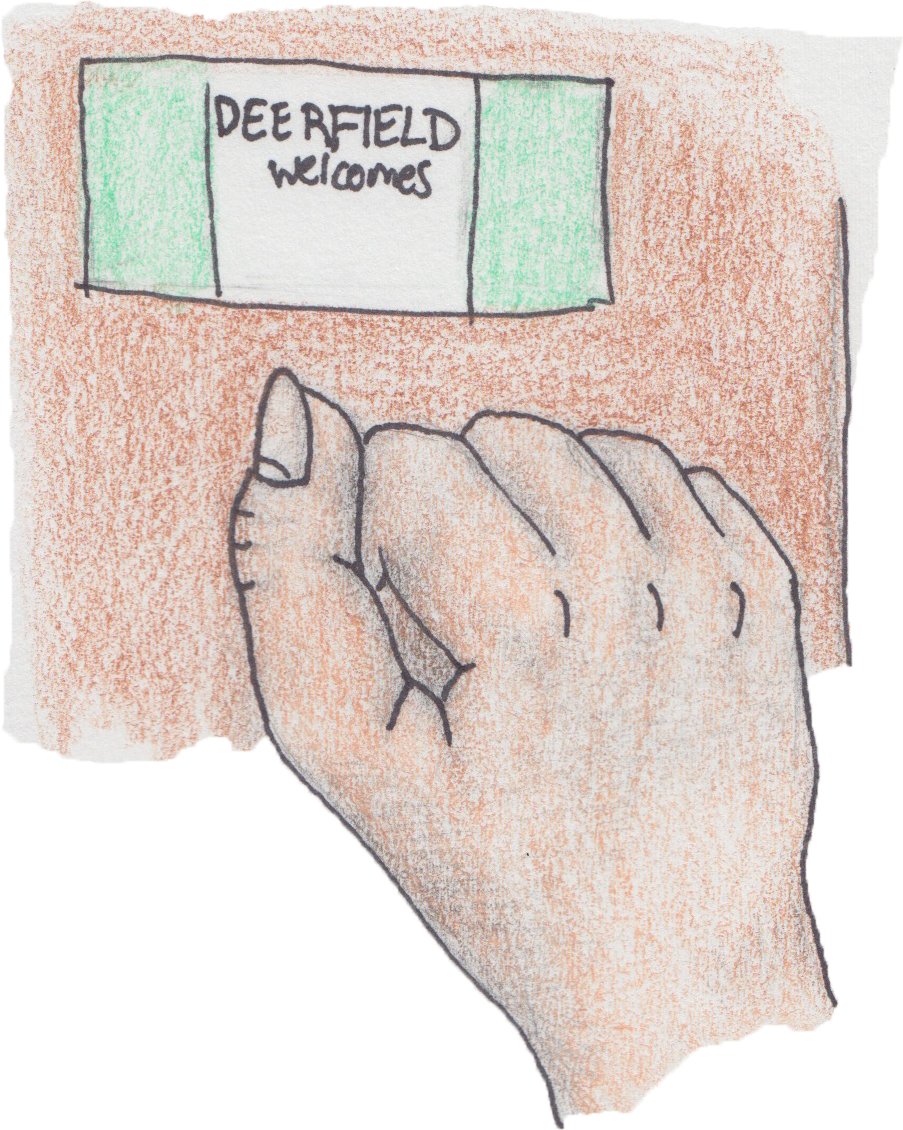Time and time again, Deerfield students grapple with what it means to “do good” in the world. Most students are already aware of the basic principles that Deerfield, and the greater world, define as “good,” such as kindness, honesty, gratitude, and hard work. However, “doing good” extends into a deeper meaning among busy Deerfield students often wrapped up in their own concerns. Deerfield teachers and mentors discuss the importance of curiosity, within the classroom and outside of it. We need to broaden our curiosity to the people around us.
How often do you find yourself simply answering “I’m good, thanks” when someone asks how you are doing? How often do you find yourself not really expecting any other answer from someone when you ask this question yourself? While eating a sit-down meal, spending time with friends, or enjoying a feed in your common room, how often do you find yourself looking around and noticing what expressions are on people’s faces, how they are feeling, or if they seem different than usual? Our consciousness is often distracted by toiling over a homework assignment, what we are going to do this weekend, or an interaction we had earlier in the day. While it is natural to be absorbed in our own needs and desires, we can also more deliberately direct some of this care towards others.

Deerfield prides itself on being a strongly woven community. It is up to us, as students, to strengthen these bonds among us. Instead of asking “How are you?” we can try asking, “What was the best part of your day?” or, “What is on your mind?” or “What was something really funny that happened to you recently?” When someone asks you “How are you?” you could answer with something that made you happy, something that is causing you stress, something you are puzzled about, or something that you are looking forward to. Instead of falling into habits of short answers and superficial interactions, can we deepen our relationships by communicating more freely?
Being thoughtful towards others does not only lead to more meaningful conversations, but can be essential in taking care of one another. A community is responsible, to a certain extent, for the wellbeing of its individuals.
Take a moment to think about your hall, for example. Is there someone who you haven’t seen lately? Is there someone who you know is worried about tryouts, a big test coming up, or something happening back home? Is there someone who you have observed to be a little down? Is there a new student who you haven’t really gotten to know? Reach out to them and ask them how they are doing. And listen. Really listen. We can extend this practice to our classes, our sports team, or to our group of friends.
Caring for others has a clear impact on the community, but also has an impact on you. A recent study from Brigham Young University looked into what factors can most prolong one’s lifespan. The study examined tens of thousands of people over the course of several years and considered every aspect of their lifestyles, from their diet, to their medical history, to the places where they lived. To the researchers’ surprise, the number one factor that prolongs one’s lifespan the most was social integration. Having close relationships was in second place. To put that into perspective, exercise ranked in seventh place, and breathing clean air ranked in tenth. Another recent study found similar conclusions about increasing happiness. This means that being aware of others, saying a genuine hello on the path, meaningfully chatting with your peers, and caring for a struggling friend strengthens the community while also improving your own life.
“Doing good” means taking the extra time to mindfully ask and listen to everyone we come in contact with, including seeking out those we don’t. Isn’t mindfulness towards others an important part of mindfulness? It is our responsibility to look out for one another and to create lasting, meaningful, and honest memories during our high school years.

